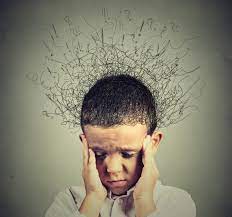
Breaking News
 The Prostate Cancer Test Dilemma
The Prostate Cancer Test Dilemma
 The Separation of Righteousness and Politics
The Separation of Righteousness and Politics
 Russian strike knocks out power in Kyiv FRANCE 24 English
Russian strike knocks out power in Kyiv FRANCE 24 English
Top Tech News
 How underwater 3D printing could soon transform maritime construction
How underwater 3D printing could soon transform maritime construction
 Smart soldering iron packs a camera to show you what you're doing
Smart soldering iron packs a camera to show you what you're doing
 Look, no hands: Flying umbrella follows user through the rain
Look, no hands: Flying umbrella follows user through the rain
 Critical Linux Warning: 800,000 Devices Are EXPOSED
Critical Linux Warning: 800,000 Devices Are EXPOSED
 'Brave New World': IVF Company's Eugenics Tool Lets Couples Pick 'Best' Baby, Di
'Brave New World': IVF Company's Eugenics Tool Lets Couples Pick 'Best' Baby, Di
 The smartphone just fired a warning shot at the camera industry.
The smartphone just fired a warning shot at the camera industry.
 A revolutionary breakthrough in dental science is changing how we fight tooth decay
A revolutionary breakthrough in dental science is changing how we fight tooth decay
 Docan Energy "Panda": 32kWh for $2,530!
Docan Energy "Panda": 32kWh for $2,530!
 Rugged phone with multi-day battery life doubles as a 1080p projector
Rugged phone with multi-day battery life doubles as a 1080p projector
 4 Sisters Invent Electric Tractor with Mom and Dad and it's Selling in 5 Countries
4 Sisters Invent Electric Tractor with Mom and Dad and it's Selling in 5 Countries
Top docs question need to 'medicate' millions of 'ADHD' kids:

Top doctors are increasingly questioning the need to put millions of children who have been diagnosed with Attention Deficit Hyperactivity Disorder, or ADHD, on medications that alter their minds and behaviors, often in very bad ways, over a period of time.
"As glasses help people focus their eyes to see," medical experts from the American Academy of Pediatrics say, "medications help children with ADHD focus their thoughts better and ignore distractions." And while stimulants are often abused for their ability to produce addictive sensations of high energy, euphoria, and potency, they are commonly compared to benign medical aids like eyeglasses or walking crutches, as suggested by their name, notes Dr. Yaakov Ophir. Ophir is a research associate at the Natural Language Processing lab of the Technion – Israel Institute of Technology and a licensed clinical psychologist with a specific expertise in child therapy, parent training, and family interventions, in a column that was initially published by the Brownstone Institute.
The piece was republished on the Substack of Dr. Robert Malone, who helped create mRNA technology.

 Pathway to the stars
Pathway to the stars

